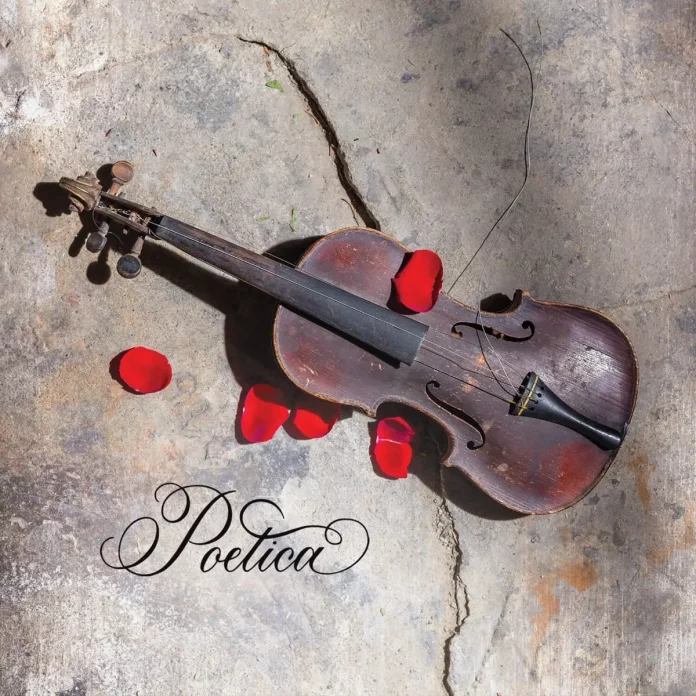“Americans don’t care too much for beauty” opined Lou Reed, on the bleak Last Great American Whale from his New York album of 1989. But Rachael Sage does. Born in 1971 in Port Chester, New York, Sage is a many-sided artist, with a background in dance and drama and more than a passing interest in Irish art and culture. She is a poet and visual artist, a self-taught pianist and multi-instrumentalist and a singer-songwriter who started her own Mpress Records label in 1996. To date she has some 15-plus albums to her name.
Created under the tyranny of Covid, Poetica is a consistently striking double CD. Sage sets aside her piano playing to focus on intimately cast and inner-directed “spoken word” and “processed sound” vocals, with her ability seemingly to slip outside familiar song structures coloured at times by touches of beatboxing, percussion, harmonica and acoustic and electric guitar. She wrote the majority of the music, with a handful of pieces co-crafted with (separately) Dave Eggart (clo), Kelly Halloran (vn) and Phil Faconti (dobro).
Beautifully recorded and produced, the release comes with printed lyrics and a sequence of what are presumably Sage’s own atmospheric colour photographs. One CD is the complete package, while the other presents the same tracks largely stripped of the vocals. While Sage’s reflective and often “questioning” lyrics compel attention, the discs are equally effective.
The filmic, mood-rich yet musically vibrant Poetica is the brainchild of Sage and her long-time collaborator Eggart. It also draws upon the astutely focused musicianship of other such figures: for example, Halloran and Faconti, Russ Johnson (t) and Will Wilder (harm). These and other contributors are detailed below but there are many further participants, too numerous to mention here but listed track by track in the CD packaging. For all such seeming largesse, it’s important to stress that the music mostly projects a most effective, lean and pared-down aura.
Commentators have spoken of Sage’s work as being in the spirit of Laurie Anderson, Patti Smith and Leonard Cohen, while The New York Times has characterised her stage performances (which can feature some banter between songs) as “alternately channelling her inner Fanny Brice [the stage figure behind Barbara Streisand’s role in Funny Girl] and Jewish Norah Jones”. All of which might lead the jazz enthusiast to ask: so what is in this music for me?
I would say, quite a lot. This is not the “packaged” jazz which Lou Reed featured on Walk On The Wild Side from Transformer, nor the jam-like swinging triplet grooves which kick in on Reed’s Beginning Of A Great Adventure on the later New York. It evinces, rather, the prismatic intelligence of a contemporary jazz sensibility, mixed with a classical, folk and blues literacy to exploit freshly matters of call and response, tone and pulse, rhythmic accent and emotional aura.
Discography
CD1: Unconditional; Beginning; Powder; Passenger; Magenta and Blue; Lower Eastside Baby; Lamentation; Handwriting; Days of Awe; Winemaker; Sleep When I’m Tired; Butterflies; How Songs Are Born; Engagement; Pulpit; Thanksgiving; Swing Dance; Untitled (51.31)
CD2: Instrumentals (51.31)
Sage (v, beatbox, harm, g, elg, pc) with (selected personnel): Dave Eggart (clo); Russ Johnson (t); Dave Krakauer (cl); Will Wilder (harm); Kelly Halloran (vn); Jack Petruzelli (p, harmonium, Hammond org, dobro); Jeff Allen (b); Doug Yowell, Quinnt (d, pc). New York c. 2021.
Mpress Records MP 6331-2
















